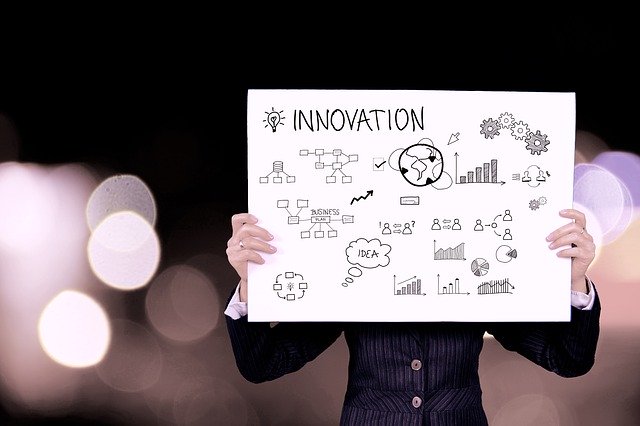This post is sponsored by Philip Morris International
These are difficult times. COVID-19 has sent shockwaves around the planet, both in terms of the scope of illness and death associated with the virus and in terms of its impact on global economies. Entire industries have ground to a halt. There are businesses that will never reopen as a result of this disruption.
Yet there are also stories of hope.
Many companies are taking their role as societal stakeholders more seriously, pivoting from their existing lines of business to produce essential supplies medical workers so direly need. LVMH is transforming its perfume and cosmetics factories to make free hand sanitizer for French hospitals, while Dyson and Xerox are helping produce more ventilators. Hanes is retrofitting its factories to make masks.
Others, such as Microsoft, are helping the government use artificial intelligence to process research on the virus. Amazon has set up a relief fund to help small businesses that are struggling at this time.
Despite the dire circumstances, this moment in history is also proof that great things can come out of tough moments. Here are just some of the ways businesses are persevering in the current moment and inspiring others to muster up resiliency.
Embracing remote work
Companies that had been hesitant to move forward with remote workforce policies are now being forced to adapt to technology and give workers the flexibility that research shows they want. Undoubtedly, many businesses that have begrudgingly adapted will be more open to flexible work in the future.
“Most CEOs agree on the big idea emerging from the current crisis: ‘We can’t go back to the way we were. Instead, we must become a more adaptable, learning organization, competing not only with scale, but also speed,’” a recent Bain analysis noted. It added that some CEOs are “telling their organizations, ‘This new normal feels smarter and better than the way we worked before.’”
Improving worker benefits
In this unprecedented time, many companies are also reevaluating the benefits they offer workers and looking for ways to improve work-life balance.
Microsoft is setting a precedent by giving 12 weeks of parental leave to workers as many states close schools for the remainder of the academic year.
Meanwhile, many other top employers are re-evaluating their paid sick leave policies. According to the nonprofit advocacy group JUST Capital, 36 of the top 100 employers in the country have expanded sick pay since the crisis began.
Among them are Darden Restaurants, owner of Olive Garden and Longhorn Steakhouse, which is extending paid sick leave to all 190,000 of its employees for the first time. That includes hourly restaurant workers who are often forced to choose between forgoing pay to stay home when ill or showing up to work and infecting others, and the company says the change is permanent.
Even ridesharing companies that have long received criticism for having a large workforce of contract workers without many benefits are stepping up to the plate. Uber and Lyft were among the first of their peers to offer paid sick leave to drivers who contract COVID-19.
“We believe this is the right thing to do,” Andrew Macdonald, an Uber senior vice president, said in a statement.
Building resilience for the future
Some executives are recognizing an opportunity to prepare for future market disruptions at this time, and industries are transforming in ways that will build resilience.
Schools and universities that are being forced to teach students remotely are equipping themselves with the tools needed to expand e-learning and training educators on how to work with such systems. This infrastructure may expand access to education in the future while making that industry more flexible in the face of future disruptions.
The health system is being taxed in unprecedented ways too that is already forcing a global conversation on how to improve it. Public health infrastructure, in particular, may see an expansion as countries acknowledge the need to prevent another crisis of this magnitude from occurring again, according to a McKinsey analysis.
While COVID-19 is not related to climate change, institutions are also recognizing that the next crisis may come in the form of a natural disaster. The city of Ann Arbor, Michigan, unveiled a $1 billion plan last month to become carbon neutral over the next decade precisely for that reason.
“This is a transformational moment,” Missy Stults, sustainability manager for the city, told Karma. “It underlines the importance of investing in resiliency.”
For more on how businesses are adapting for the greater good at this time, take a look at these resources:
https://fortune.com/2020/04/13/global-500-companies-coronavirus-response-covid-19-pandemic/
https://www.mckinsey.com/business-functions/risk/our-insights/covid-19-implications-for-business
https://www.bain.com/insights/in-a-crisis-this-is-what-good-looks-like/
https://www.ey.com/en_us/transactions/companies-can-reshape-results-and-plan-for-covid-19-recovery
___________________________________________________________________________________________________________________________________________
If you enjoyed this article, sign up for the Business Transformation SmartBrief to get news like this in your inbox, or check out all of SmartBrief’s business newsletters, covering topics such as leadership, human resources, small businesses and policy & advocacy.
